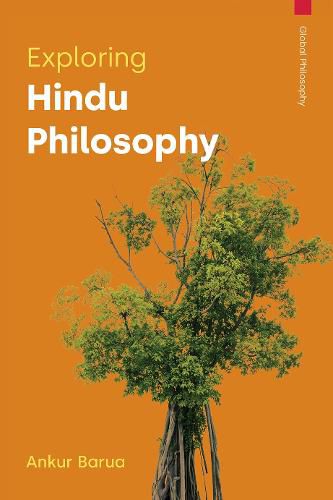Readings Newsletter
Become a Readings Member to make your shopping experience even easier.
Sign in or sign up for free!
You’re not far away from qualifying for FREE standard shipping within Australia
You’ve qualified for FREE standard shipping within Australia
The cart is loading…






This title is printed to order. This book may have been self-published. If so, we cannot guarantee the quality of the content. In the main most books will have gone through the editing process however some may not. We therefore suggest that you be aware of this before ordering this book. If in doubt check either the author or publisher’s details as we are unable to accept any returns unless they are faulty. Please contact us if you have any questions.
This introductory text points to some of the diverse tapestries of Hindu worldviews where scriptural revelation, logical argumentation, embodied affectivity, moral reasoning, and aesthetic cultivation constitute densely interwoven conceptual threads. It begins with an exploration of some classical iterations of the quest for a fundamental ontology amidst the diversities of the everyday world. This quest is often embedded in both a diagnosis of the human condition as structured by suffering and a therapy for recovery from worldly fragmentation. A crucial aspect of this therapeutic structure is the analysis of the means of knowledge and the categories of reality, since in order to know the nature of the world one must proceed along truth-tracking routes. Such dynamic mind-world encounters are mediated through language, and Hindu philosophical texts extensively discuss the motif of whether or not deep reality can be comprehended through linguistic structures. These philosophical exercises also shape reflections on themes such as aesthetics, social organization, the meaning of life, and so on. As Hinduism increasingly migrates to western locations through practices of yoga, meditation, and mindfulness, and along with sensibilities relating to vegetarianism, ecology, and pacifism, we encounter multiple translations of these classical motifs relating to the self, language, and consciousness.
$9.00 standard shipping within Australia
FREE standard shipping within Australia for orders over $100.00
Express & International shipping calculated at checkout
This title is printed to order. This book may have been self-published. If so, we cannot guarantee the quality of the content. In the main most books will have gone through the editing process however some may not. We therefore suggest that you be aware of this before ordering this book. If in doubt check either the author or publisher’s details as we are unable to accept any returns unless they are faulty. Please contact us if you have any questions.
This introductory text points to some of the diverse tapestries of Hindu worldviews where scriptural revelation, logical argumentation, embodied affectivity, moral reasoning, and aesthetic cultivation constitute densely interwoven conceptual threads. It begins with an exploration of some classical iterations of the quest for a fundamental ontology amidst the diversities of the everyday world. This quest is often embedded in both a diagnosis of the human condition as structured by suffering and a therapy for recovery from worldly fragmentation. A crucial aspect of this therapeutic structure is the analysis of the means of knowledge and the categories of reality, since in order to know the nature of the world one must proceed along truth-tracking routes. Such dynamic mind-world encounters are mediated through language, and Hindu philosophical texts extensively discuss the motif of whether or not deep reality can be comprehended through linguistic structures. These philosophical exercises also shape reflections on themes such as aesthetics, social organization, the meaning of life, and so on. As Hinduism increasingly migrates to western locations through practices of yoga, meditation, and mindfulness, and along with sensibilities relating to vegetarianism, ecology, and pacifism, we encounter multiple translations of these classical motifs relating to the self, language, and consciousness.